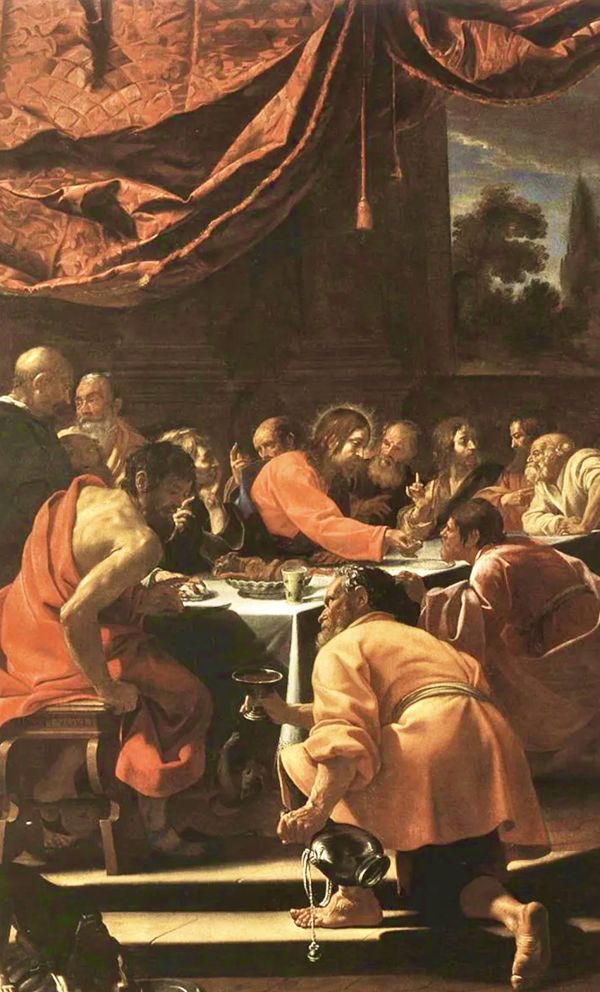Integral Trust: emblematic Action, which generates uncontaminated persons
(Jn 13:1-15)
According to a felicitous expression of Origen, Eucharist is the wound in Christ's side that is always open; but Vatican II did not spend a single word on the many Eucharistic devotions.
In order for us to fully understand his Person, the Council fathers were well aware that Jesus did not leave a statue or a relic. He preferred to express Himself in a ‘gesture’, which challenges us.
God does not identify persons in a standard way, nor does He superimpose His thoughts on people's history and sensibilities.
By bending over us, He himself transcends roles, the club’ spirit, the very ideas, and the certificates. Action - this one yes - “exemplary”.
In the supreme freedom of service, «washing» is a Baptismal figure: of the Son’s Person-Mission on behalf of mankind, all now ‘enabled’.
The Master unites to Himself a group of even unconvinced disciples, but ‘made pure’ - not because He aims to form a school distinct from others, or even unilateral one.
He calls by Name and creates assembly to introduce us into Love, through the passage from slavery to the freedom of the Gratis (descending).
Peter craves to command: he doesn’t want to introduce himself into a logic that manifests God servant of all, independent of their past.
Lowering Himself to the level of the slave who puts down his clothes, Jesus wants to humanize us by recovering instead the opposites, rooted in each one... even admitting the contestation.
And He does not take off his apron: it’s the only uniform that belongs to Him. That kind of clothing stays on Him - He wears it in Heaven too.
He did not play the role of the servant, to return to Heaven to be the master. He doesn't condition anyone.
The Life of the Father pursues us on every path, to make us feel adequate: One-Body-Only with the Son.
This is the «service» of the disciples, to be carried out with life and the announcement of the «good news»: to make known that the Father is the unconditional Lover of woman and man.
Uniquely the esteem in which we hold His sons and their stories - without prejudice - leads to acts of conviviality and inexplicable recoveries.
Jesus washing ‘feet’ depicts the secret of the blissful life that expands the way of the I into the way of the Thou: in being genuine and free even to descend, to the point of bending down to serve.
Without labyrinths of norms or lofty cries of principle; without compromising the most genuine spontaneity and streamlining - without giving in to mistrust of the others’ imperfection.
In the Baptismal attitude... celebrating existence in all its forms, beyond boundaries; trusting in life, in its natural and opposite polarities.
By allowing for other developments and expansions.
Opening our eyes to the world - cornerstone of new relationships, replacing one-sided customs, or external fashions.
Embracing a richer destiny.
By loving contradictions.
A ban to perfection’s models and to the exasperation of "skills". Rather, the search for solutions that rely on, without interfering.
Rediscovering one's humanizing nature.
Recognizing diversity.
By approving, redeeming and evaluating ‘pure’ each particular path [the 'washed' feet of each one].
[Holy Thursday in Coena Domini, April 17, 2025]












